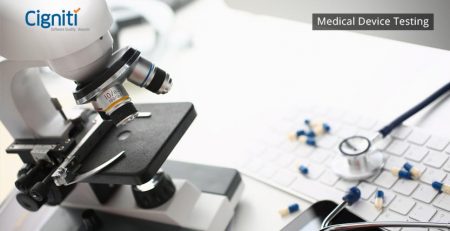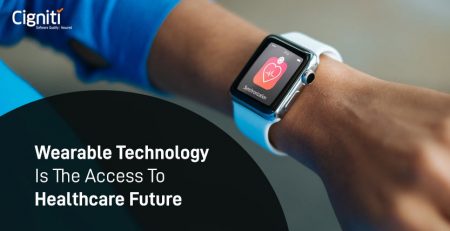Protect Your Medical Device Ecosystem Against Opportunistic Attacks
Security has been an issue of contention in healthcare. The patient’s data is vulnerable to attackers due to the lack of familiarity and poor implementation of security in healthcare.
With the advent of the current pandemic, the situation has become even worse, as the recent findings show no experiential evidence of proper implementation of medical device software testing.
According to Forrester research, “Technological innovation in healthcare promises to improve the quality and speed with which patient care is delivered, and investments in new medical technologies is at an all-time high. However, the unfortunate reality is that security is all too often an afterthought in the design and development of these innovative new technologies. This is especially true for IP-enabled medical devices.”
The main issue is assessing how to protect your medical device ecosystem against any opportunistic attacks and the dire need to address medical devices cybersecurity.
Issues plaguing today’s healthcare
Before we seek answers in protecting the medical device ecosystem, let us hover into the issues plaguing today’s healthcare industry, pertaining to the security aspects.
The present healthcare scenario presents a contrasting landscape worldwide. While we have qualified medical professionals and advanced medical devices at one end, we also see an exponential rise of medical costs aided by unpredictable exigencies such as the current pandemic posing severe challenges to the entire medical ecosystem.
Amidst all this trauma, the healthcare companies are moving towards digitalization after getting influenced by the impact of technology in the medical device testing ecosystem.
Preliminary measures to maintain healthcare cybersecurity
To thwart the challenges in healthcare, some of the preliminary measures recommended by healthcare assurance experts is to –
- Abide by application development security protocols
- Provide access to medical equipment only for trusted users
- Spend on segregating external and internal medical devices on enterprise networks and structure proprietary networks
- Build a centralized system to manage information
Apply a zero-trust networking architecture
According to a report from Forrester, “Knowing that you can’t maintain an effectively secure perimeter, adopt a zero-trust approach for your hospital network, making security ubiquitous throughout, not just at the perimeter”.
While dealing with the implementation of zero trust security controls, it is imperative to implement zero trust security controls, including segmenting devices based on risk, inspecting network data as it flows between segments, and requiring authentication into the network.
As healthcare is a sensitive industry, healthcare enterprises dealing with medical devices should not wait for an attack in which someone suffers real physical harm or until government regulations force change.
A real-time understanding of the medical device software testing is critical in improving operational efficiencies, increasing return on investment, and keeping patient care safe.
According to a Deloitte study, “Approximately 68% of medical devices will be either connected or connectable to a health system network by 2025. Each of those devices simultaneously represents an opportunity for healthcare providers to transform the delivery of patient care as well as for attackers to infiltrate a health system’s network, as any device is a potential entry point for hackers.”
To strike a balance between mitigating cyber risks and improving patient care, hospitals need solutions to help protect and manage their medical devices and refine their security position.
Medical Device Management
An ideal medical device management approach should attempt to ensure that the medical device:
- is monitored by a post-market surveillance program, which includes safety and adverse event reporting.
- will be properly installed, maintained, and calibrated by trained staff
- complies with regulatory requirements
- will be used safely by a trained qualified operator
- meets local human and environmental conditions and
Incorporating these points into a medical device management system can be difficult and complicated, particularly due to human and financial limitations, but most of all because people are not aware of the importance of a good management system.
A robust management system can incorporate maintenance issues into its overall plan which may help overcome many maintenance problems.
Leveraging latest and emerging technologies to avert medical device ecosystem against cyberattacks
Artificial intelligence (AI) and machine learning (ML) are already helping hospitals all over the world improve patient health outcomes and ease their administrative burdens. Now, AI is being used in cybersecurity to ensure the safety of patient data and help augment human efforts.
According to a recent study published in Healthcare Weekly, “Cyberattacks cost hospitals $6.2 billion every year and represent a serious danger to patients and administrators alike. In response, nearly 90% of healthcare executives already report using traditional anti-virus software, but this is no longer enough to ensure security.”
Despite certain barriers, AI is helping cybersecurity teams of hospitals to identify new threats, extend security resources, protect connected medical devices, and respond to and isolate data breaches.
Four ways AI/ML can improve Healthcare data security as per a recent study are –
- Identify new malware threats with machine learning – Machine learning apps can identify emerging threats using predictive algorithms.
- Identify and respond to breaches using behavioral modeling – If a security breach does occur, AI helps identify and isolate these threats faster than traditional security measures.
- Protect medical devices from attack – Smart medical devices represent serious threats to patient safety if left unprotected from remote breaches. AI can help address the most challenging barriers to securing these devices.
- Extend human resources and address security shortages – The sheer quantity of potential threats can overextend security staff, reducing their efficacy and contributing to burnout.
AI solutions allow hospitals to process massive datasets efficiently and rapidly, freeing professionals to focus their experience and intuition on the highest-priority potential threats.
In the coming years, AI supported cyber defenses will become imperative if the medical devices ecosystem is to proactively protect and respond to cyber threats, keeping the data of patients safe.
Closing thoughts
There is a need for healthcare executives to rethink the dangers of today’s digital environment as disastrous data breaches take the centerstage far too often. What are the best ways to protect the business in the face of fast-evolving threats?
At Cigniti, the medical devices security test experts are convinced that the healthcare industry should address the challenges of digital security in a strategic way keeping a long term in mind and using a multilayered approach.
Our medical device software testing services include verification & validation of medical devices used by dentists, surgeons, ophthalmologists, endocrinologists, & cardiologists such as surgical instruments, contact lenses & ultrasound scanners, orthopedic implants & hemodialysis machines, cardiac pacemakers, imaging, etc.
Cigniti’s healthcare software quality assurance experts are fully capable of helping clients test their smart, AI-based medical & healthcare devices such as intelligent beds, sterilization equipment, tool kits for Pets, etc.
Need help to tackle any healthcare software related issues? Talk to our dedicated Medical Devices Testing Center of Excellence (CoE) experts.





Leave a Reply